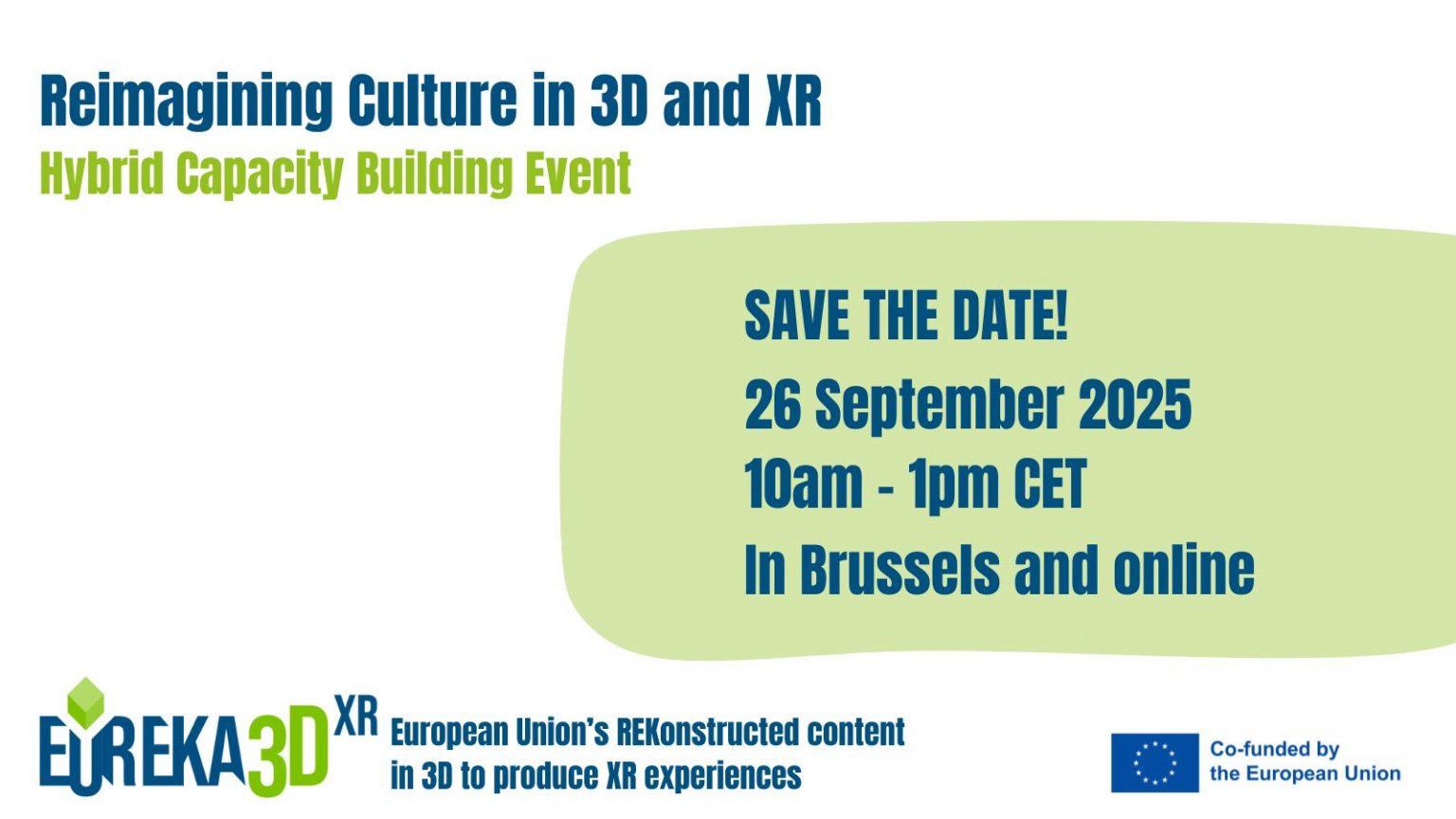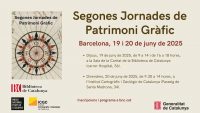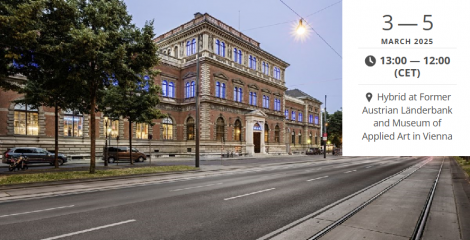
In a rapidly evolving world where technological advancements and environmental challenges continually reshape society, preserving and leveraging cultural heritage as a resource for research, societal benefit, and economic growth is more vital than ever.
The Alliance for Research on Cultural Heritage in Europe (ARCHE) invites you to join the “Innovation through Heritage: Resilience in Times of Climate Change” International Conference, hosted by the Time Machine Organisation (TMO), where it’ll be possible explore how national and European research and funding policies can unite to make cultural heritage resilient in the face of climate change. This event marks a significant step forward as the ARCHE consortium works toward establishing a European Partnership Framework — a masterplan enabling Member States and the European Commission to jointly support innovative initiatives aimed at strengthening cultural heritage resilience.
“Innovation through Heritage” brings together policymakers, thought leaders, innovators, and stakeholders from across Europe to shape the future of cultural heritage. With a focus on critical themes such as digitization, technology, climate adaptation, and resilience, this conference provides a unique platform to collaborate and define a sustainable roadmap for cultural heritage research and innovation, shaping its transformative potential for 2040 and beyond.
Read more at this link.


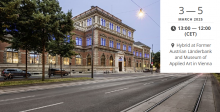
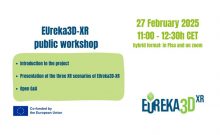
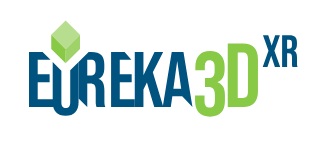 EUreka3D-XR – European Union’s REKonstructed content in 3D to produce XR experiences is the continuation project of EUreka3D, funded by the Digital Europe Programme of the European Union, to develop innovative re-use scenarios and tools that enable the creation of extended reality (XR) applications, through expanding the features and services already developed and tested in the EUreka3D project. EUreka3D-XR kickoff event will take place on 26-27 February 2025 at Museo della Grafica, Pisa (Italy), hosted by project coordinator
EUreka3D-XR – European Union’s REKonstructed content in 3D to produce XR experiences is the continuation project of EUreka3D, funded by the Digital Europe Programme of the European Union, to develop innovative re-use scenarios and tools that enable the creation of extended reality (XR) applications, through expanding the features and services already developed and tested in the EUreka3D project. EUreka3D-XR kickoff event will take place on 26-27 February 2025 at Museo della Grafica, Pisa (Italy), hosted by project coordinator 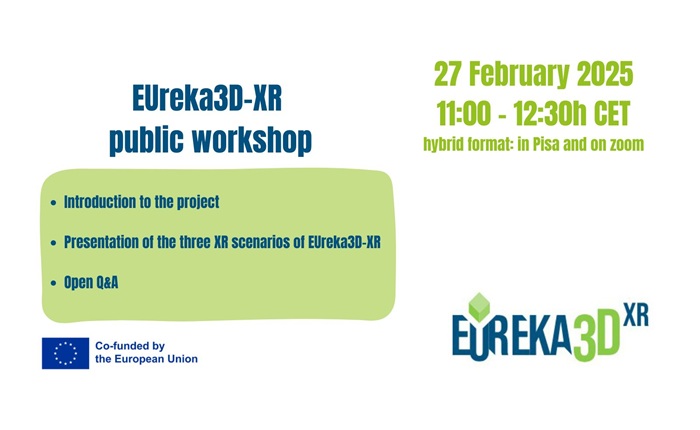
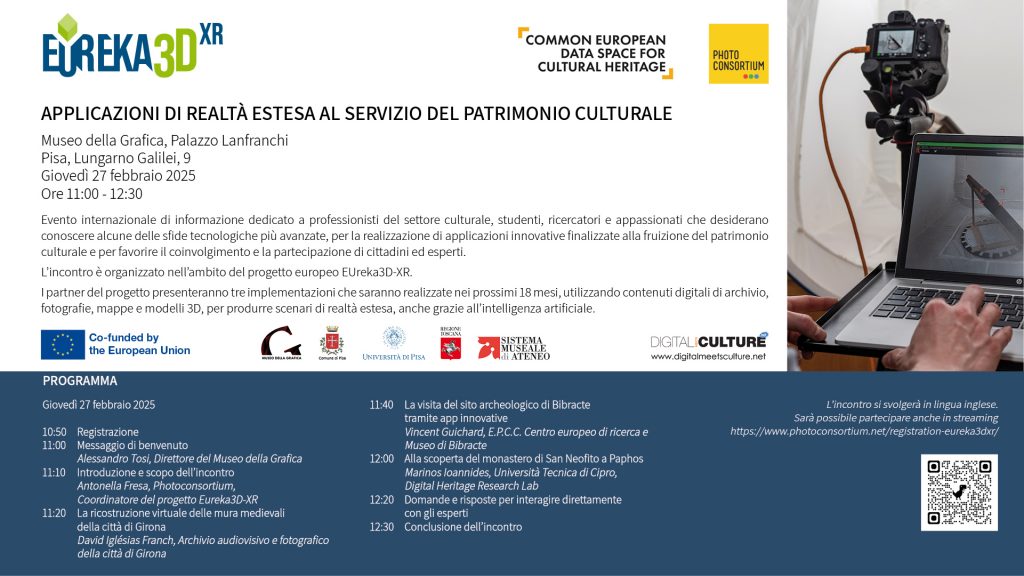
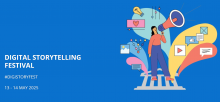
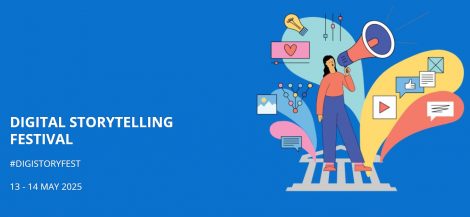

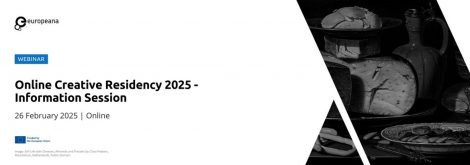
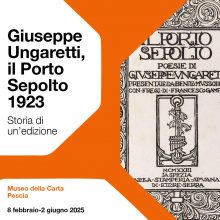
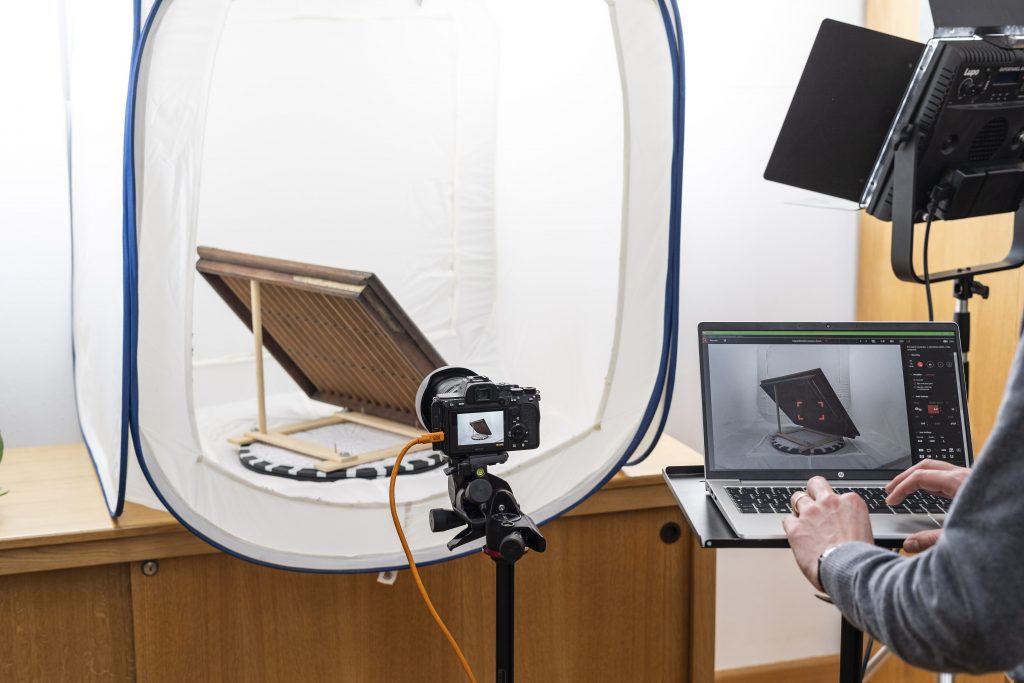
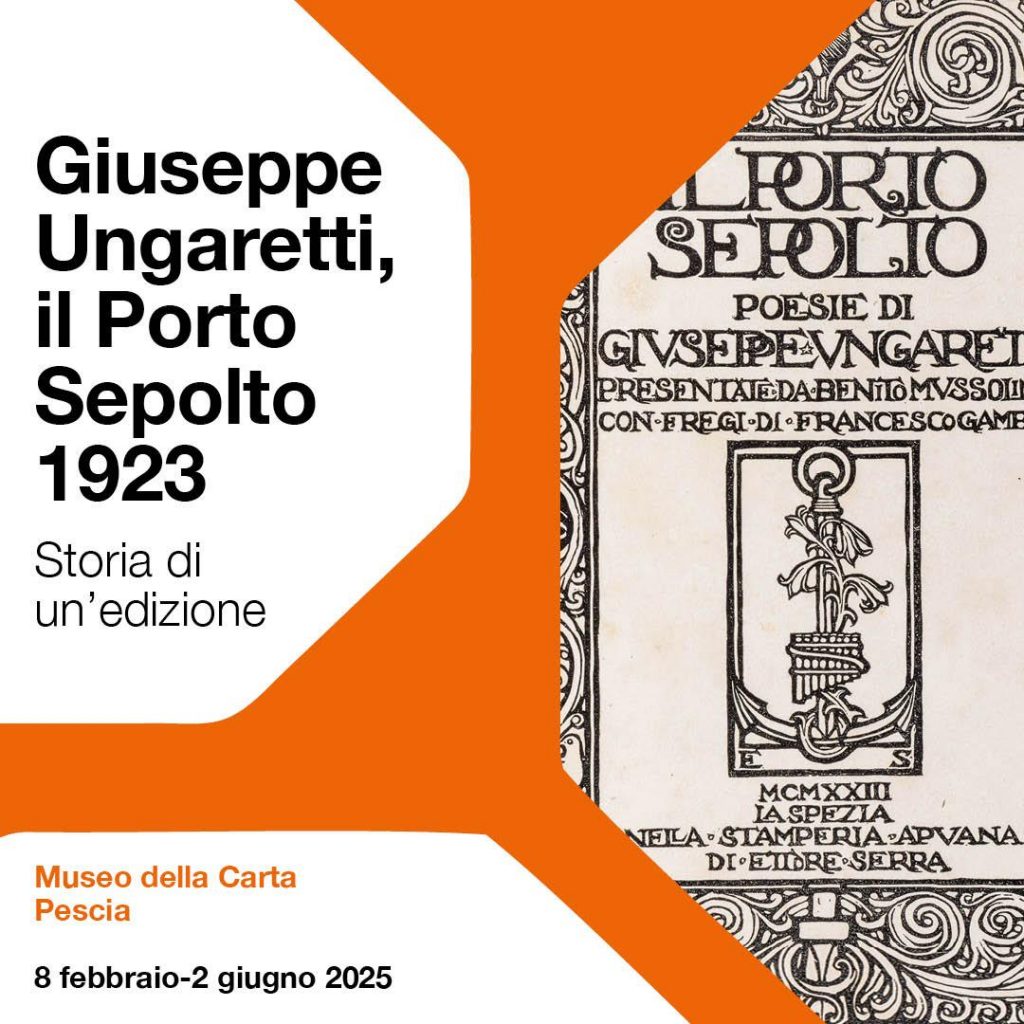
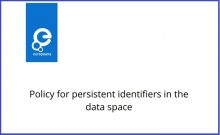
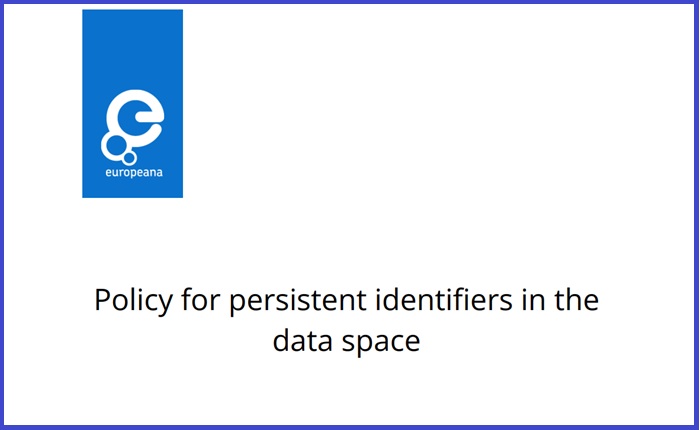

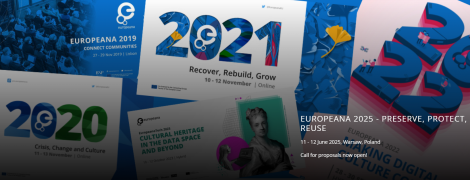
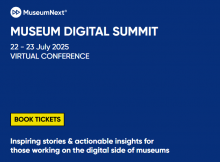
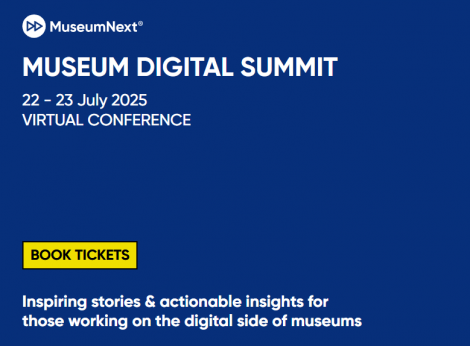
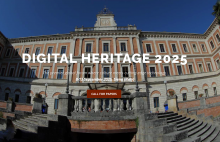
 If you have interesting news and events to point out in the field of digital cultural heritage, we are waiting for your contribution.
If you have interesting news and events to point out in the field of digital cultural heritage, we are waiting for your contribution.



